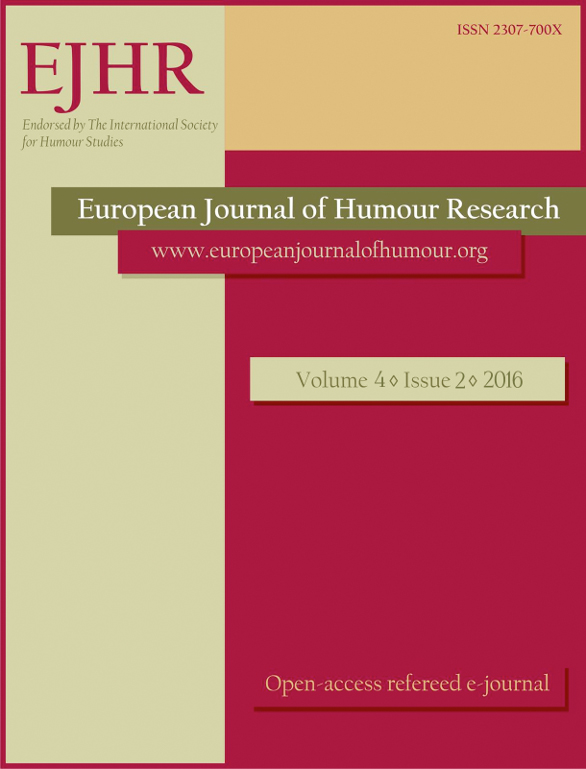The power of metonymy in humour:
The power of metonymy in humour:
stretching contiguous relations across different layers of meaning
Author(s): Sabina Tabacaru, Kurt FeyaertsSubject(s): Social Sciences, Language and Literature Studies, Theoretical Linguistics, Applied Linguistics, Communication studies, Pragmatics, Cognitive linguistics, Descriptive linguistics
Published by: Krakowskie Towarzystwo Popularyzowania Wiedzy o Komunikacji Językowej Tertium
Keywords: humour; metonymy; layering; reference-point; inferencing;
Summary/Abstract: This paper is grounded in Cognitive Linguistics (CL), which sees metonymy as a conceptual phenomenon, in which one conceptual entity (the source) provides mental access to another entity (the target) within the same conceptual domain (Radden & Kövecses 1999), as opposed to metaphor, which is seen as a mapping between different domains (Lakoff 1987). Our view on metonymy slightly deviates from the mainstream CL-approach, as we reinterpret the criterion of the single domain as an epiphenomenon of the conceptually defined contiguous relationship (Feyaerts 1999), which we take to be metonymy’s categorical feature. In this contribution, we analyse the structural role of metonymy in humorous interactional sequences as they occur in the American television-series House M.D. and The Big Bang Theory. As our examples qualify as staged communicative acts, the interpretation of which involves processing meanings on different layers, we use Clark’s (1996) layering model to account for the humorous uses of metonymies and to show that metonymic connections lie at the heart of pragmatic inferencing. In line with – and at the same time extending – earlier work (Feyaerts & Brône 2005) on the potential of metonymic chaining to generate humorous and expressive meanings, this study demonstrates how a metonymic relationship may extend across different layers of meaning – the ‘serious’ discourse base space and a ‘non-serious’ pretence space – to generate a humorous meaning, based on the common ground between the speakers and the audience.
Journal: The European Journal of Humour Research
- Issue Year: 4/2016
- Issue No: 2
- Page Range: 1-18
- Page Count: 18
- Language: English

